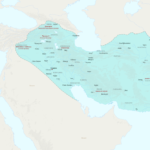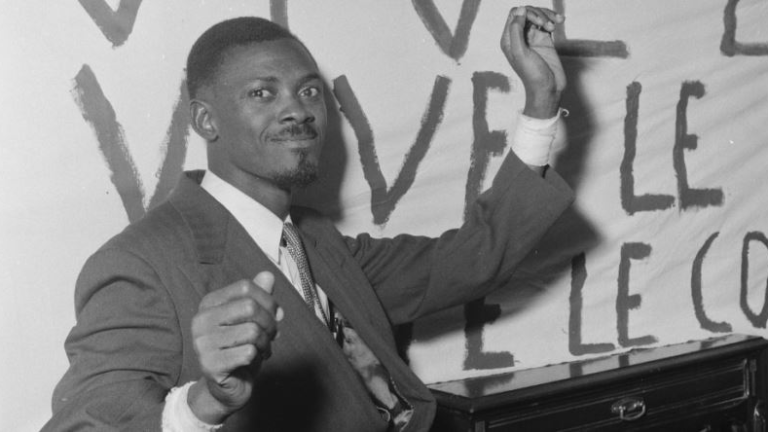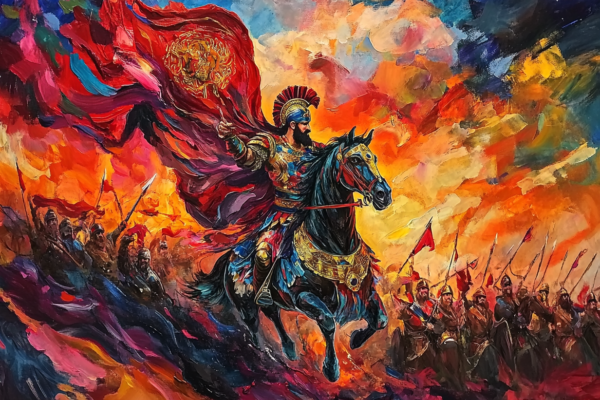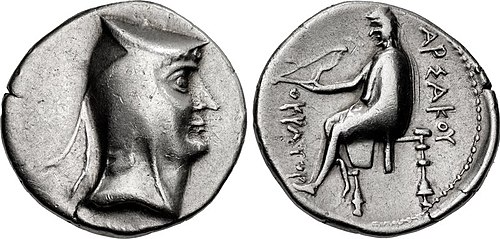Patrice Lumumba's Early Life and Education
Patrice Lumumba was born on July 2, 1925, in the village of Onalua, located in the Kasai region of what was then the Belgian Congo. Coming from the Batetela ethnic group, Lumumba grew up in a modest family that earned its livelihood through agriculture and small-scale livestock farming. Although economically humble, his family held a respected place in their community. This simple upbringing played a key role in shaping Patrice Lumumba’s deep sensitivity to the struggles of ordinary people—a sensitivity that would later define his political vision.
From an early age, Lumumba displayed a strong passion for learning. He began his formal education in Catholic missionary schools, where he consistently stood out for his academic excellence. Despite being taught within the framework of a colonial curriculum designed to reinforce European dominance, Patrice Lumumba developed notable proficiency in the French language and literature. Exposure to Western classics further enriched his intellectual world, planting the seeds of critical thinking. It was during this time that he began to perceive the deep contradictions between the values he was learning and the oppressive realities of colonial rule.
As he progressed in his education, Patrice Lumumba also gained valuable practical experience through civil service jobs in cities like Léopoldville (now Kinshasa) and Stanleyville (now Kisangani). These roles not only gave him insight into the functioning of the colonial system but also exposed him to the harsh socio-economic inequalities endured by the Congolese people. He witnessed first-hand the disparity in access to education, healthcare, and economic opportunities. These observations would later shape his unwavering commitment to justice and equality.
In addition to his formal work, Patrice Lumumba began to emerge as a prominent intellectual figure through his writing and oratory skills. He contributed articles to newspapers and delivered speeches that focused on social justice and human dignity. His early writings already reflected a deep belief in self-determination and the right of the Congolese people to shape their own future. Through these platforms, he not only voiced his ideas but also inspired others to question the legitimacy of colonial domination.

Partice Lumumba's First Steps into Politics
By the 1950s, Patrice Lumumba had evolved from being merely a civil servant into a thoughtful intellectual with a growing awareness of social injustices. During this period, dissatisfaction among the Congolese people under Belgian colonial rule was steadily rising, and demands for independence were becoming more vocal. It was in this tense atmosphere that Lumumba decided to enter the political arena—a decision that would fundamentally alter both his personal destiny and the future of his country.
Lumumba began working at the postal administration in Léopoldville (now Kinshasa), where he quickly drew attention for his administrative skills and natural leadership abilities. He was known among colleagues as intelligent, hardworking, and highly disciplined. His frequent discussions on politics and social issues with coworkers further established him as a thought leader in his community. In this environment, Lumumba emerged not only as a capable worker but also as an inspiring and organizing force.

A pivotal moment came in 1955 when Patrice Lumumba visited Brussels, the heart of the colonial empire. This brief trip had a profound impact on his political consciousness. Confronted with the stark contrast between the high standard of living in Belgium and the poverty in the Congo, Lumumba became further radicalized. His vision shifted from modest reforms to full sovereignty and self-determination for the Congolese people.
In 1958, Lumumba took a decisive political step by co-founding the Congolese National Movement (Mouvement National Congolais – MNC). Unlike many other political parties of the time, which were based on ethnic or regional interests, the MNC advocated for national unity. Through this party, Patrice Lumumba promoted a broad, inclusive political platform that aimed to bring together all Congolese people under a shared vision of independence and dignity. The MNC’s anti-colonial and progressive stance reflected Lumumba’s belief in active civic participation and the creation of a unified Congolese identity beyond ethnic divisions.
Through public rallies, radio broadcasts, and grassroots meetings, Patrice Lumumba quickly became a widely recognized figure across the Congo. His powerful oratory skills, charismatic presence, and genuine connection with the people elevated him from a politician to a national leader. He especially resonated with the youth and working-class population, who saw in him a symbol of hope, dignity, and change.
Patrice Lumumba Leads Independence and Premiership
Patrice Lumumba’s years of political struggle culminated in a historic turning point on June 30, 1960. On that day, the Belgian Congo officially gained independence, and the Republic of the Congo was born. This moment was not only a milestone for the Congolese people but also a powerful symbol of anti-colonial resistance across Africa and the wider world. Patrice Lumumba etched his name into history by becoming the first Prime Minister of the newly independent nation.
During the independence ceremony, Lumumba delivered a speech that would resonate far beyond the borders of his country. While King Baudouin of Belgium praised the so-called “civilizing mission” of colonialism in his address, Patrice Lumumba responded with a passionate and unscripted rebuttal. In his speech, he boldly highlighted the suffering endured by the Congolese people under colonial rule—forced labor, racial discrimination, violence, and humiliation. His words, unapologetically direct, inspired millions and gave voice to generations of silenced Africans. However, they also triggered outrage among Belgian officials and Western powers, who perceived Lumumba’s defiance as a threat to their influence. From that moment on, Patrice Lumumba was no longer just a national leader; he had become a global symbol of anti-colonial resistance.

Yet, independence brought with it a host of challenges. The colonial administration had left behind a fragile and incomplete state structure. Most government institutions, including the military and bureaucracy, were still dominated by Belgians or inexperienced local officials. In this chaotic and unstable environment, regional secessionist movements began to emerge. The most serious threat came from the mineral-rich Katanga province, which, backed by foreign interests, attempted to break away from the central government.
Despite these difficulties, Patrice Lumumba remained determined to hold the country together. However, he soon found himself besieged on all sides—by internal political rivals, rebellious army factions, and foreign powers wary of his perceived ties with the Soviet Union. Both Belgium and the United States viewed Lumumba’s outreach to the USSR with deep suspicion, interpreting it as a Cold War threat. This perception led to his increasing isolation on the global stage.
At home, Lumumba struggled to assert control over the national army, which had become mutinous in the wake of independence. The rising tension, coupled with a lack of strong institutional support, made it increasingly difficult for him to govern effectively.
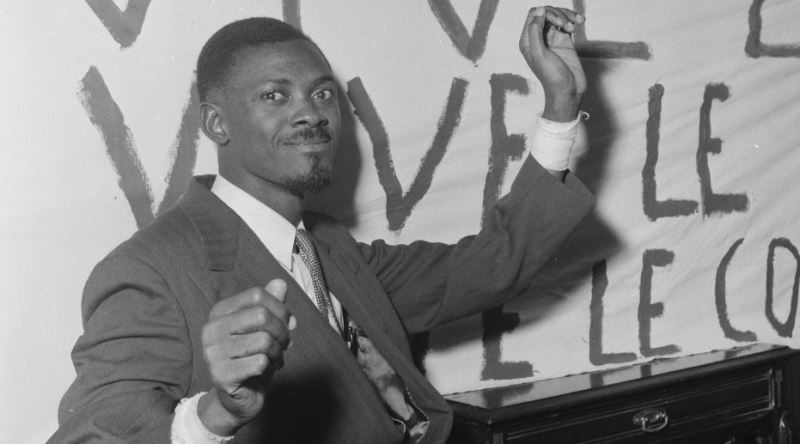
The Coup Against Patrice Lumumba
Unfortunately, the post-independence period proved to be deeply turbulent for the Congo. The joy of newfound freedom quickly gave way to instability, as the country was thrust into political and military chaos. From the early days of his premiership, Patrice Lumumba faced mounting challenges, both from within and outside the country. One of the most serious threats emerged in the mineral-rich Katanga province, where a secessionist rebellion was launched under the leadership of Moïse Tshombe. Far from being a purely local uprising, the Katanga crisis was heavily backed by Belgium, which deployed mercenaries and supported the breakaway regime—clearly demonstrating that the shadow of colonialism still loomed large over the Congo.
In response, Patrice Lumumba took swift and decisive measures to preserve national unity. He sought to restore order in the capital, Léopoldville (now Kinshasa), restructure the national army, and suppress the secessionist movement. However, his efforts were hampered by a lack of institutional support and growing international isolation. Frustrated by the West’s refusal to assist his government, Lumumba turned to the Soviet Union for help—an act that, amid the Cold War, branded him as a dangerous figure in the eyes of the United States and its allies.

Simultaneously, Lumumba’s efforts to reform and assert control over the military stirred resentment among senior officers. Among them was Colonel Joseph-Désiré Mobutu, whom Lumumba had appointed to oversee the army. Mobutu, however, began to build his own power base, quietly positioning himself as an alternative center of authority.
In September 1960, Mobutu launched a sudden and decisive military coup. The coup led to Patrice Lumumba’s removal from office and placed the country under de facto military control. Mobutu declared the formation of a “neutral” interim government, but the reality was the start of a new era of authoritarian rule. For Lumumba, the coup marked a dramatic turning point in his political life. He was placed under house arrest, his communications were restricted, and he became increasingly isolated from his allies. The man who had led his nation to independence was now being treated as a threat by his own government.
In summary, the post-independence period was riddled with crises that Patrice Lumumba tried valiantly to resolve. But a combination of internal betrayal and foreign interference undermined his leadership. Mobutu’s coup not only ended Lumumba’s political career but also shaped the Congo’s political trajectory for decades to come. These events laid the groundwork for the tragic final chapter of Lumumba’s life.

Tragic End of Patrice Lumumba
What followed in the aftermath of Patrice Lumumba’s removal from power deeply shocked the international community. After being placed under house arrest and later captured by political opponents, Lumumba was transferred to Katanga—a breakaway province hostile to his leadership. On January 17, 1961, he was brutally tortured and executed with the complicity of Belgian officials and Katangan separatists. His death was initially concealed, but once the truth emerged, it sent shockwaves around the world. The assassination of Patrice Lumumba was not merely the silencing of a political figure; it was an attack on the ideals of independence, justice, and the sovereignty of African nations.
Lumumba’s assassination marked a pivotal moment in the history of Africa’s decolonization struggle. Though his life was cut tragically short, his vision, words, and ideals lived on. For millions across the continent, Patrice Lumumba became more than a man—he became a symbol of resistance, a martyr for liberation, and a voice for the oppressed. His legacy grew stronger after death, transforming him into an enduring icon of African dignity and defiance in the face of colonial oppression.
Today, Patrice Lumumba is remembered as a hero throughout Africa. His name graces city squares, universities, and streets, while his speeches continue to inspire new generations. Although his end was marked by betrayal and violence, the historical legacy he left behind remains a beacon for those who continue to fight for justice, freedom, and the right of all peoples to govern themselves.


![Coin of Arsaces I. The reverse shows a seated archer carrying a bow, with the Greek legend reading "ΑΡΣΑΚΟΥ" (right) and "[AYT]OKPATOP[OΣ]" (left), meaning [coin of] "Arsaces"](https://historifyproduction.com/wp-content/uploads/2025/04/500px-Coin_of_Arsaces_I_1_Nisa-1-150x150.png)
